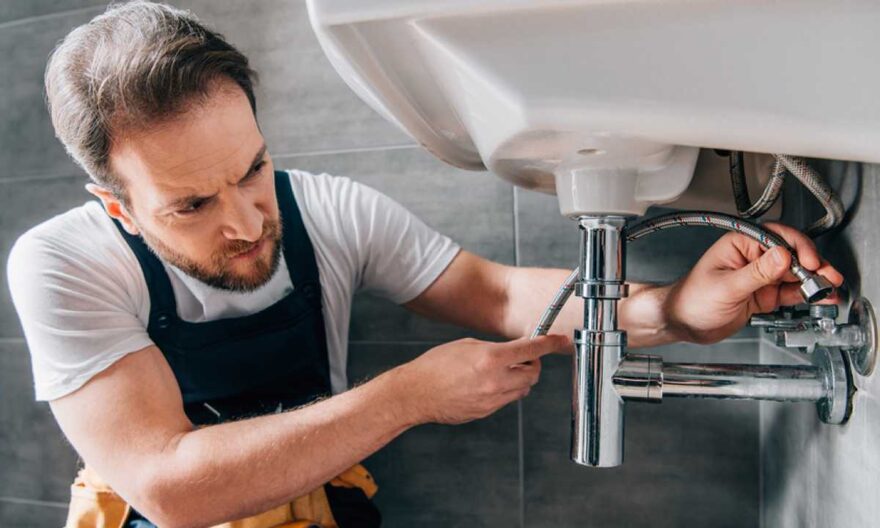Understanding your waterworks serves as essential to all homeowner. Many homeowners utilize our plumbing daily, from taking a shower to cleaning dishes, but we commonly miss how this intricate system works. Some typical plumbing issues could not just disrupt your everyday life, and can also lead to serious damage if not addressed in a timely manner. That’s why educating yourself about fundamental plumbing problems and fixes is crucial in the right direction.
In this introductory handbook, we will discuss ten typical plumbing issues and solutions, talk about when to enlist the help of a professional plumber, as well as share recommendations for maintenance. We will confront urgent plumbing issues, like how to handle burst pipes, and share tips on preparing your plumbing for different seasons. Whether you're a seasoned DIY enthusiast and a newcomer to home maintenance, this resource will help you understand your plumbing system better and ensure it operates well for years to come.
Common Pipe Issues and Solutions
One of the most frequent plumbing problems property owners encounter is one obstructed drain. This problem can arise from the accumulation of strands of hair, soap, and organic matter over a period. To resolve a minor blockage, try using a plunger or a drain snake. For heavier blockages, a mixture of sodium bicarbonate and vinegar can help break down the material. However, if the clog does not go away, it may be wise to consult a qualified plumber to prevent harm to your plumbing system.
Another common issue is leaky faucets, which can lead to wasted water and increased bills. Often, plumber enniscorthy is a worn-out washer or O-ring. This can usually be fixed by turning off the flow of water, disassembling the faucet, and replacing the broken pieces. Regular maintenance can help minimize the chances of leaks occurring, conserving both money and water in the end.
Finally, reduced water pressure can be a annoying issue for many householders. This issue can be caused by a collection of mineral deposits in the water lines, a leak, or problems with the municipal water system. If reduced pressure is localized to one fixture, check for any clogs in the aerator. If https://yamcode.com/ is general, it may indicate a larger issue, such as a leak in the main water line, which would require qualified assessment to resolve correctly.
When to Call a Professional Plumber
Knowing the right time to call a professional plumber can spare you time, worry, and potential damage to your home. If you notice a significant leak, ongoing clog, or a sudden drop in water pressure, it's crucial to contact for expert help. These problems might point to underlying issues that could worsen if not dealt with promptly. Moreover, if you listen to strange noises coming from your pipes or notice water stains on the walls or ceilings, it’s a definitive sign that something is wrong.
An additional scenario to consider is when you're faced with plumbing tasks that are beyond your skill level. Simple repairs like replacing a tap or clearing a drain can often be managed on your own. However, if you encounter more complex scenarios, such as a broken pipe or problems with your sewage system, it's vital to enlist the help of a licensed plumber. They have the tools and knowledge to address safety concerns while ensuring the job is done right the first time.
Ultimately, if you're considering renovations that involve plumbing work, it's best to seek guidance from a qualified from the start. They can help you choose the right fixtures and make sure everything is installed correctly. This not just prevents future headaches but also ensures that your plumbing system runs efficiently and meets your needs. Remember, it's always wiser to be safe than sorry when it comes to plumbing issues.
Preventive Maintenance Advice for Property Owners
Routine maintenance is essential to steering clear of costly plumbing repairs and ensuring a efficient system. One of the most straightforward ways to maintain your plumbing is to routinely check for leaks. Inspect faucets, toilets, and under sinks for any signs of moisture or drips. Tackling these issues early can save water and prevent bigger problems down the line. Additionally, keeping an eye on your water bill can alert you to any sudden increases that may indicate a hidden leak.
Another essential maintenance task is to prevent clogs in your drains. Inform your family about what is acceptable and unacceptable be disposed of through sinks and toilets. Consistently clean out such areas as sink traps and shower drains to remove hair, debris, and grease buildup. Using a drain strainer can also help catch particles that contribute to clogs. Every few months, consider using a gentle drain cleaner or a mixture of vinegar and baking soda to keep your pipes clear.

In conclusion, make it a habit to flush your water heater once a year to eliminate sediment buildup, which can improve functionality and extend its lifespan. Check the temperature setting on your water heater; setting it at 120 degrees Fahrenheit not only prevents scalding but can also reduce energy costs. Don’t forget to check exposed pipes for freezing risks during chilly months, and protect any vulnerable areas to prevent burst pipes. Regular maintenance will ensure your plumbing system runs smoothly for an extended period to come.
